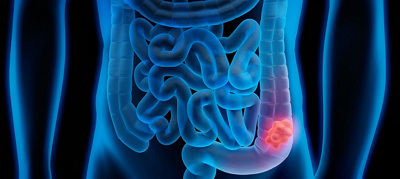A colonoscopy is regarded as the best method for early detection, diagnosis, and treatment of various gastrointestinal conditions, including colorectal cancer.
There are a host of reasons that you may be referred by a GP for a colonoscopy, but ideally you want to be pre-emptively checking for pre-cancerous polyps or other gastrointestinal anomalies, rather than waiting for symptoms to present.
Dr Maré du Plessis, a specialist surgeon operating in private practice at Mediclinic Milnerton in Cape Town, says that the majority of colonoscopies are performed as part of screening programmes for colon cancer: “Most often it is done to investigate the cause of blood in the stool, abdominal pain, diarrhoea, a change in bowel habit, or an abnormality found on colonic X-rays or a computerized axial tomography (CT) scan.”
He says the most common reasons for a colonoscopy are:
- Periodic colonoscopies for early detection and preventive measures for people with a family history of non-colonic cancers or specific colonic issues (such as ulcerative colitis or colonic polyps).
- Investigating gastrointestinal symptoms such as blood in the stool, abdominal pain, diarrhea, or changes in bowel habits.
- Follow-up for previous polyps or colon cancer to monitor for recurrence and detect new abnormalities early.
- Further investigation of abnormalities detected through other imaging techniques/scans, allowing for a more comprehensive assessment.
- For polyps to be removed, and other interventions can be performed to address various gastrointestinal issues, without hospital admittance.
He says that ideally, everyone over the age of 50 should have a screening colonoscopy: “Most patients wait until symptoms develop, but if precancerous polyps are detected during a screening, they can proactively be removed during the procedure, mitigating the potential for cancer to develop.”
The colonoscopy procedure involves the insertion of a flexible colonoscope through the anus, which is then slowly advanced under visual control into the rectum and throughout the colon. The colonoscope's camera and light source enable a detailed examination of the colon lining, allowing for the detection, diagnosis, and treatment of abnormalities.
This procedure can be done as an outpatient at the doctor’s rooms, if they have an endoscopy suite with the necessary equipment. He says there is no reason to fear the procedure: “People understandably imagine discomfort or pain, but you are fully sedated. After the procedure you are able to consult and receive immediate feedback on results, and discuss any recommended treatment or further tests.”
He says that another reason you may be referred for a colonoscopy is when you have an unexplained iron deficiency: “Chronic blood loss is usually the cause of iron deficiency and the most common location is in the gastrointestinal tract, so we perform a gastroscopy and a colonoscopy to look for an undiagnosed malignancy or lesion in the stomach or colon.”
The gastroscopy checks the throat, food pipe (oesophagus) and stomach, which is the upper part of your digestive system. This is often done in conjunction with the colonoscopy which covers the lower part of the digestive system.

